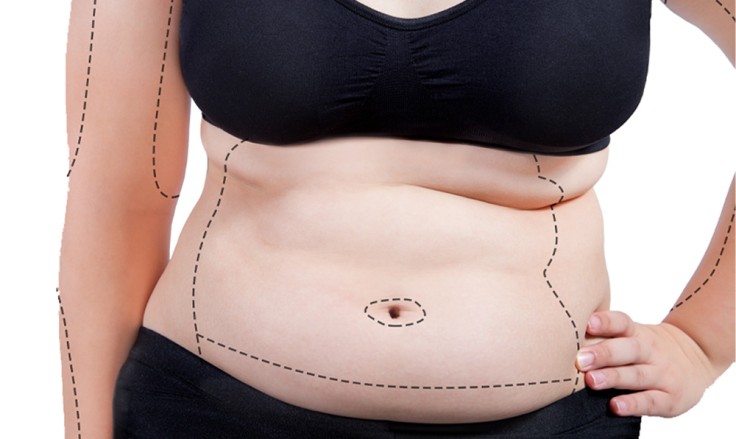Bariatric Surgery: How Much Weight Will I Lose?
Introduction
Bariatric surgery offers a life-changing solution for those who struggle with obesity. Many ask, "How much weight will I lose?" In essence, bariatric surgery for weight loss can lead to significant improvements when combined with lifestyle changes. However, the amount of weight lost depends on several factors. This guide explains expected outcomes, key influences, and practical advice to help you succeed. By understanding these elements, you can set realistic goals and prepare for a healthier future.
Understanding Bariatric Surgery
Bariatric surgery includes procedures that reduce the size of the stomach. Common methods are gastric bypass, gastric sleeve, and gastric balloon. Each method works differently but shares the goal of limiting food intake. In a gastric sleeve, a large portion of the stomach is removed. In gastric bypass, the digestive tract is rerouted. The gastric balloon is a temporary, non-surgical option that fills space in the stomach. Consequently, these procedures help reduce hunger and promote weight loss. It is important to note that results vary from patient to patient. Your starting weight, overall health, and commitment to lifestyle changes all influence outcomes.
Expected Weight Loss Outcomes
One of the most common questions is, "How much weight will I lose?" While outcomes differ, many studies show that patients lose 60% to 80% of their excess weight. For example, if you have 50 kilograms of extra weight, you might lose 30 to 40 kilograms within 12 to 18 months. However, the exact amount depends on several factors:
- Type of Procedure:
Gastric bypass tends to yield rapid weight loss, while the gastric sleeve offers steady, sustained results. - Starting Weight:
Patients with higher initial weight may experience greater absolute loss, though the percentage can vary. - Diet and Exercise:
Strict adherence to a post-operative diet and regular physical activity is critical for maximising weight loss. - Metabolic Factors:
Individual metabolism and hormonal balance play key roles in determining the speed and amount of weight loss. - Commitment to Lifestyle Changes:
Ongoing healthy habits are essential to sustain weight loss long term.
Thus, while general percentages provide a guideline, your unique situation will ultimately determine the outcome.

Factors Influencing Weight Loss
Multiple factors affect the amount of weight you lose after surgery. Firstly, the surgical technique matters. Procedures with less invasiveness can yield better long-term outcomes. Secondly, your adherence to dietary guidelines is critical. A structured diet ensures that you receive the necessary nutrients while limiting calorie intake. Additionally, regular physical activity boosts metabolism and muscle tone. It is also important to consider psychological factors. A strong support system and a positive mindset can help you overcome challenges. Lastly, genetic factors and your individual metabolism influence your results. In summary, weight loss is a complex process that depends on surgical and personal factors.
Pre-Operative Preparation
Proper pre-operative preparation is the foundation of success. Begin with a comprehensive medical evaluation. Your surgeon will review your medical history and may order blood tests and imaging studies. This evaluation confirms your suitability for surgery and identifies any risks. In addition, you should follow dietary and lifestyle recommendations. Quitting smoking is essential, as nicotine impairs healing. Also, adopt a balanced diet rich in lean proteins and vegetables to boost your recovery. Lastly, prepare mentally by researching the procedure and setting realistic expectations. By addressing these areas, you set the stage for a smoother recovery and better outcomes.
The Day of Surgery and Immediate Effects
On the day of your surgery, follow your surgeon’s instructions closely. You will need to fast beforehand and adjust your medications as advised. The procedure is typically performed under general anaesthesia, ensuring you do not feel pain during the operation. After the surgery, you may experience swelling, bruising, and discomfort. Your medical team will monitor you and manage pain with prescribed medications. Although the immediate post-operative phase may be uncomfortable, these symptoms are normal and will subside with proper care.
Post-Operative Diet and Nutritional Guidance
Following bariatric surgery, your diet will change drastically. Initially, you will start with clear liquids. Over time, you will progress to pureed foods and then gradually reintroduce solids. This step-by-step approach allows your digestive system to adapt to its new size and function. Nutrition is key; focus on lean proteins, fruits, vegetables, and whole grains. These foods provide essential vitamins and antioxidants that support healing. Equally important is hydration—aim to drink at least eight glasses of water a day. Good nutritional support not only aids in weight loss but also enhances overall recovery.
Conclusion
To summarise, bariatric surgery for weight loss offers significant potential for transforming your health and lifestyle. The amount of weight you lose depends on various factors, including the type of surgery, adherence to a strict diet, and regular exercise. Thorough pre-operative preparation and a structured post-operative care plan are key to maximising results. By following nutritional guidance, gradually increasing physical activity, and seeking emotional support, you can accelerate your recovery and achieve lasting weight loss.
Ultimately, your success is determined by both the surgery and your commitment to long-term lifestyle changes. If you are ready to embrace these changes and maintain a healthy, active lifestyle, bariatric surgery can be a powerful tool in your weight loss journey. The decision to undergo surgery should be made after careful consultation with your healthcare provider and a clear understanding of the potential outcomes.
For more information on bariatric surgery and to book a consultation visit the ACIBADEM Beauty Center webpage.




